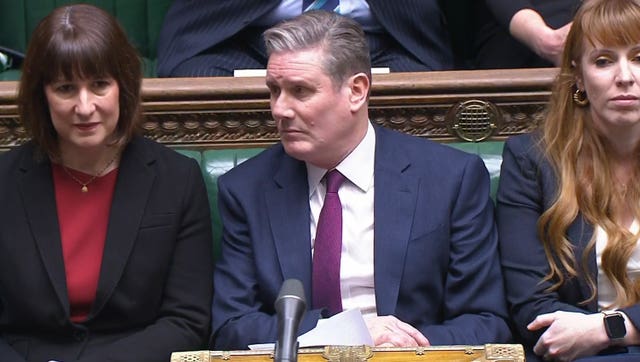Labour may not hit its wavering £28 billion green investment commitment, the shadow business secretary has conceded.
Jonathan Reynolds said on Thursday the sum remains an “ambition” but said “if we can get there” will depend on the state of the economy.
Sir Keir Starmer’s party has been insisting it was not dropping the pledge amid suggestions the scale of the spending was being axed.

Shadow chancellor Rachel Reeves first watered it down by saying it would be a target in the second half of a first Parliament, if Labour wins the general election.
But Mr Reynolds cast further uncertainty over what was a commitment ahead of Labour’s business conference with executives on Thursday.
“That’s our level of ambition but how quickly we get there, and if we can get there, has to have respect to, and heed to, the overall position of our economy,” he told BBC Radio 4’s Today programme.
“We haven’t had the last Budget before the election.
“I’m extremely confident in the overall pitch – there’s not one thing that needs to happen in the British economy to make everything fine, to see it grow faster.”
He insisted that Labour was not “struggling to make our minds up”, insisting that regardless of the sum “we’re very clear we want to see public investment rise”.
Last month, Labour sought to kill off a report the spending figure had been dropped by saying it was “committed” to ramping up the investment “subject to our fiscal rules”, which include making sure debt is falling.
Mr Reynolds also had to defend Ms Reeves’ decision not to reinstate the cap on bankers’ bonuses that was introduced after the 2008 financial crisis but axed by the Tories.
“There are other policies that are much more significant, that have changed the financial system in terms of the security of the assets that banks hold against their liabilities.
“There are other rules in terms of bonuses and how they are paid and how they can be clawed back in the event of misconduct. But the fact is we want to see a strong financial sector, that’s an asset to the UK.”
He said that Labour’s criticism had focused on the Government’s “odd” decision to bring back unlimited bonuses for bankers during a cost-of-living crisis.






